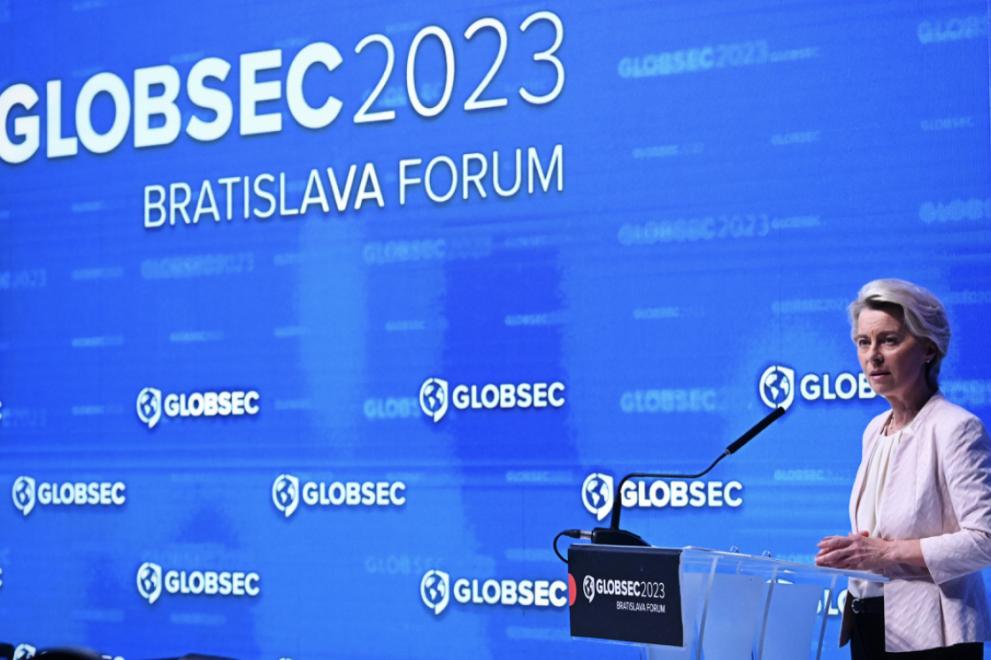
Today, the Commission presents its 5th report on the monitoring of the EU visa-free regime with Albania, Bosnia and Herzegovina, Montenegro, North Macedonia and Serbia, as well as Georgia, Moldova and Ukraine. All countries concerned continue to meet the visa liberalisation requirements and made progress in addressing last year's recommendations. The report focuses on actions taken to address the recommendations made by the Commission in the Fourth Report under the Visa Suspension Mechanism of last year to ensure continuous fulfilment of the visa liberalisation requirements. The report also highlights areas where further efforts are needed from each country.
"Visa liberalisation is an essential element to facilitate people-to-people contacts and strengthen business, social and cultural ties between EU and partner countries’ citizens. Maintaining this achievement, however, requires constant vigilance. In particular, steps should be taken promptly to increase visa policy alignment as part of the engagement and commitment to the European Union through both our visa agreements and, for many of our partners, the accession process."
Margaritis Schinas, Vice-President for Promoting our European Way of Life
"Visa-free travel between the EU and the Western Balkans and Eastern Partnership countries is a significant achievement. Mobility and people-to-people contacts are made easier by lifting visas and key policy reforms are triggered in these countries as a result. In particular, visa-free countries in the Western Balkans and Eastern Partnership must continue to step up their efforts in managing migration and asylum and in fighting corruption and organised crime. Progress towards visa alignment in the region is fundamental for the good functioning of the visa-free regime."
Ylva Johansson, Commissioner for Home Affairs
Migration
All countries assessed continued to take measures to address irregular migration. However, further effort is needed to address ongoing concerns:
- Alignment with the EU's visa policy: this is crucial for the good functioning of the visa-free regime with the EU. The lack of alignment with the EU's visa policy may lead to increasing irregular arrivals and should be addressed as a matter of priority in all Western Balkan partners.
- Frontex status agreements: status agreements have been concluded with Albania, Serbia, and Montenegro and North Macedonia. These will allow for the deployment of Frontex's standing corps at all borders of these partner countries. The agreements with Bosnia and Herzegovina should be swiftly finalised and implemented.
- Anti-smuggling operational plans: A regional Anti-Smuggling Operational Partnership was launched at the EU Western Balkans Ministerial on JHA on 3 November. This will strengthen law enforcement and judicial cooperation against smuggling networks and increase the border management capacity of Western Balkans.
Security
All countries assessed continue to take measures to prevent and fight organised crime. However, further efforts are needed to address internal security concerns:
- High-level corruption: efforts to combat corruption are still hampered by the limited capacity and legal status of anti-corruption agencies, as well as the small number of trials and convictions.
- Fight against organised crime: all countries should step up the fight against transnational organised crime networks in collaboration with Europol and by increasing their participation in EMPACT activities.
- Golden passports: countries granting citizenship in exchange for investment should abolish or refrain from implementing such schemes. Golden passports raise inherent security, money-laundering, tax evasion and corruption risks for the EU.
Next steps
The Commission will continue monitoring the fulfilment of the visa liberalisation requirements through senior officials' meetings as well as through the regular Justice, Freedom and Security subcommittee meetings and bilateral and regional dialogues between the EU and visa-free countries. The monitoring of aspects related to the visa liberalisation benchmarks will also continue being included in the Commission's annual enlargement package and, where relevant, EU accession negotiations. The Commission will continue to report to the European Parliament and the Council at least once a year.
Background
The EU currently has a visa-free regime in place with 61 countries. Under this visa-free regime, non-EU citizens with a biometric passport can enter the Schengen area for 90 days, within 180 days, without a visa. Visa-exempt travellers visiting the Schengen area will be subject to the European Travel Information and Authorisation System (ETIAS) as from the end of 2023.
Citizens of Montenegro, Serbia and North Macedonia can travel to the EU without a visa since December 2009. For citizens of Albania and Bosnia and Herzegovina, this is possible since the end of 2010. For Moldova visa-free travel entered into force in April 2014, for Georgia in March 2017 and for Ukraine in June 2017.
Data from this report relates to the 2021 calendar year, with updates for 2022 where relevant. Concerning Ukraine, as this report's scope covers up until the end of 2021, it mainly reflects the situation before the start of Russia's unprovoked and unjustified military aggression against Ukraine on 24 February 2022.
For More Information
Details
- Publication date
- 5 December 2022
- Author
- Directorate-General for Neighbourhood and Enlargement Negotiations
